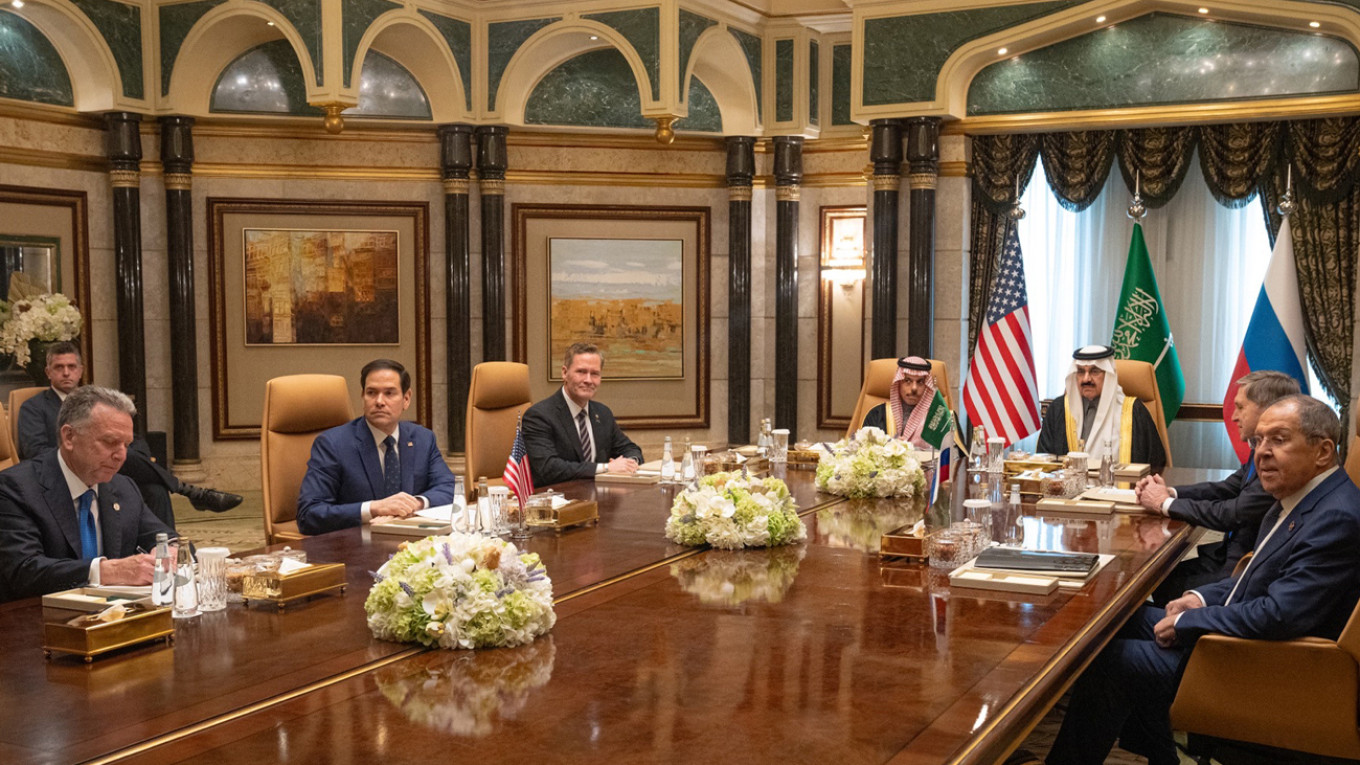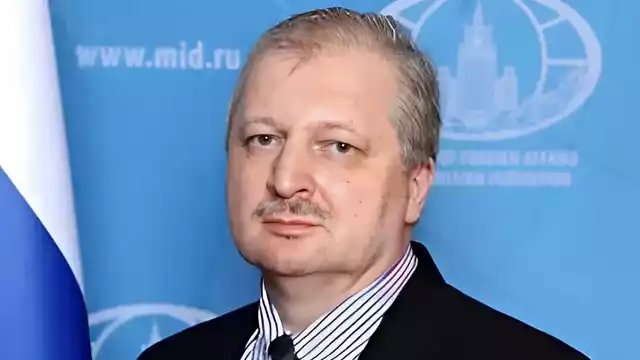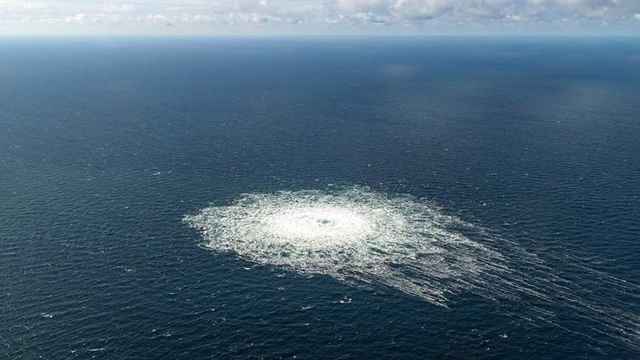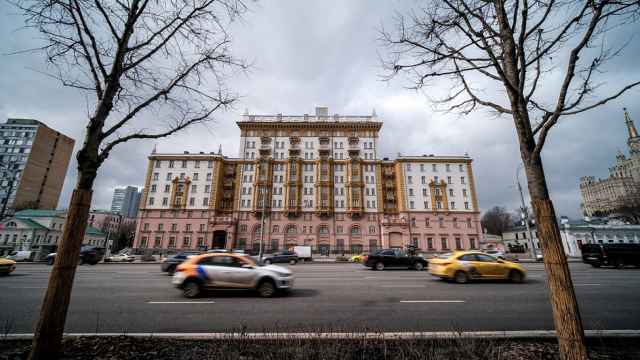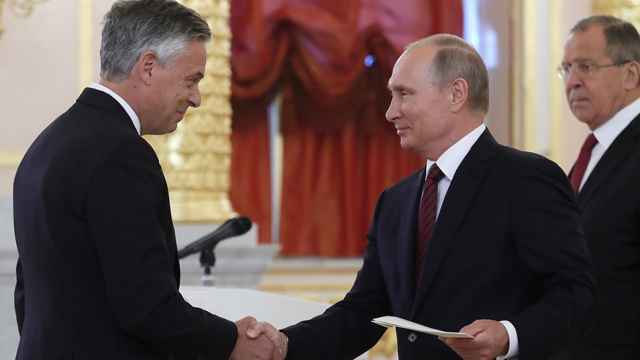Russian and U.S. officials on Tuesday held their first direct talks since Moscow’s full-scale invasion of Ukraine, with delegates from both sides striking a positive tone while downplaying the chances of an immediate breakthrough in Ukraine peace negotiations.
“Not bad, I think,” Kremlin aide Yury Ushakov told state broadcaster Channel One when asked about the 4.5-hour meeting in Riyadh, Saudia Arabia. “It was a very serious discussion on every issue we wanted to address.”
Ushakov said it was “hard to say” whether Russian-U.S. relations were improving but described the talks as productive. “We’ve agreed to consider each other’s interests and advance bilateral relations because both Moscow and Washington are interested in that,” he said.
Besides Ushkaov, Russian Foreign Minister Sergei Lavrov represented Moscow at the meeting, which the Kremlin earlier described as part of efforts to “restore the full scope of U.S.-Russia relations.” Representing Washington were U.S. Secretary of State Marco Rubio, National Security Adviser Mike Waltz and Middle East envoy Steve Witkoff.
No Ukrainian officials were present at the meeting.
U.S. officials echoed the cautious optimism of the Russian delegates, with Rubio acknowledging that “a lot of work remains before we have a result.”
Rubio outlined key priorities ahead, including restoring diplomatic ties with Russia — such as increasing staff numbers at embassies in Washington and Moscow — as well as engaging both Ukraine and Russia in future peace negotiations.
“Obviously, the diplomatic one is one we think we hope to move pretty quickly on, because this involves the treatment of our respective missions,” he said. “The second one will be difficult, which is the question of Ukraine and the end of that conflict.”
“If our diplomatic channels are broken, it will be hard to engage,” Rubio added, emphasizing that “ultimately the Russian side will be indispensable” in efforts to end the war.
However, the U.S. secretary of state also sought to temper expectations: “Today was just an agreement to begin that process.”
State Department spokeswoman Tammy Bruce said in a statement that Lavrov and Rubio agreed to “appoint respective high-level teams to begin working on a path to ending the conflict in Ukraine as soon as possible.”
On the war in Ukraine, Ushakov said delegates laid out their “principled positions” and agreed to appoint negotiators who would establish contact “in due course.”
At the same time, he said a meeting between Russian President Vladimir Putin and U.S. President Donald Trump was “unlikely” next week, as Bloomberg had earlier reported, but the two sides on Tuesday discussed “creating the conditions” for a summit.
At a post-meeting press briefing, Lavrov described the discussions as “useful” and said that delegates from both sides “did not just listen to each other, but heard each other.”
“I have every reason to believe that the American side understands our position,” the Russian foreign minister said, adding that Russia and the U.S. would “remove obstacles” to diplomacy and appoint new ambassadors in their respective capitals.
Meanwhile, despite concerns that the talks signaled a sidelining of Ukraine and European allies, U.S. officials pushed back against that characterization after the talks on Tuesday.
“Shuttle diplomacy has happened throughout history,” Waltz told reporters, stressing that U.S. officials had spoken with Ukrainian and European leaders in recent days. “The facts will continue to push back on this notion that our allies aren’t being consulted.”
Waltz also said future negotiations to end the war in Ukraine would focus on territory and security guarantees.
“This needs to be a permanent end to the war and not a temporary end, as we’ve seen in the past,” he said. “There is going to be some discussion of territory and there's going to be discussion of security guarantees.”
Describing the meeting’s atmosphere, special envoy Witkoff called the discussions with Russian delegates “positive, upbeat, constructive… solution-based.”
“We couldn’t have imagined a better result,” Witkoff said in a press briefing, though he declined to say whether U.S. officials planned to visit Russia for continued discussions.
Ukrainian President Volodymyr Zelensky criticized the Russia-U.S. meeting in Saudia Arabia for not including any representatives from Ukraine and called for “fair” talks that involve Kyiv and European countries.
“Ukraine, Europe in a broad sense... should be involved in conversations and the development of the necessary security guarantees with America regarding the fate of our part of the world,” Zelensky said during a visit in Turkey on Tuesday.
He also announced that he would postpone a planned trip to Saudi Arabia on Wednesday.
AFP contributed reporting.
A Message from The Moscow Times:
Dear readers,
We are facing unprecedented challenges. Russia's Prosecutor General's Office has designated The Moscow Times as an "undesirable" organization, criminalizing our work and putting our staff at risk of prosecution. This follows our earlier unjust labeling as a "foreign agent."
These actions are direct attempts to silence independent journalism in Russia. The authorities claim our work "discredits the decisions of the Russian leadership." We see things differently: we strive to provide accurate, unbiased reporting on Russia.
We, the journalists of The Moscow Times, refuse to be silenced. But to continue our work, we need your help.
Your support, no matter how small, makes a world of difference. If you can, please support us monthly starting from just $2. It's quick to set up, and every contribution makes a significant impact.
By supporting The Moscow Times, you're defending open, independent journalism in the face of repression. Thank you for standing with us.
Remind me later.


